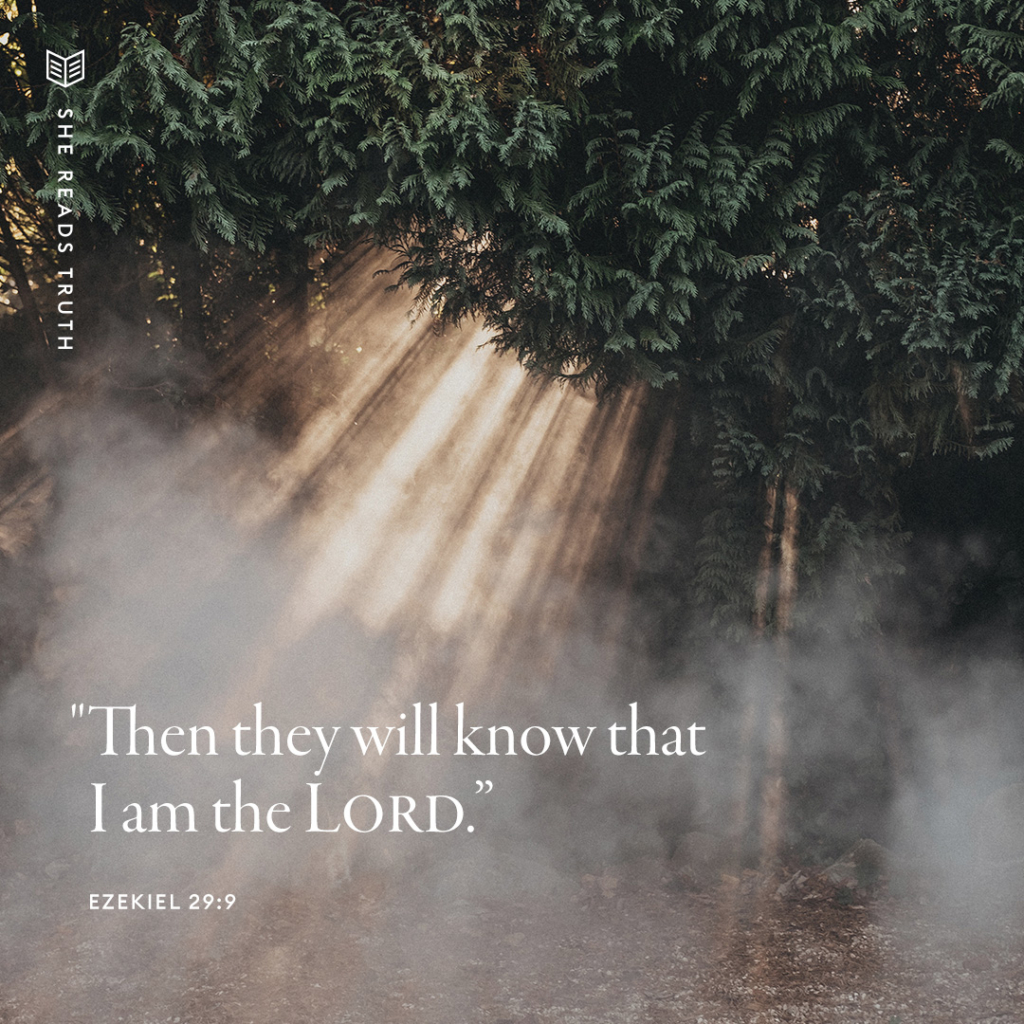In my early twenties, a mentor of mine sat me down to share with me a concept called the “good-bad split” from Henry Cloud’s book Changes That Heal. This concept speaks of how, as humans, we tend to either go all good on a person—only seeing the savory parts of them, or all bad—solely viewing them through the lens of their unsavory ones. She then explained that my emotional and spiritual immaturity resulted from my inability to see people comprehensively, taking note of their “bad” and “good” parts. It hurt, but it was helpful.
Her wisdom has carried me through a host of conflicts and disappointments over the years. It’s also greatly challenged my view of God. You see, I can tend to focus solely on God’s “savory parts”—His compassion and grace. I’d rather ignore or even erase the parts of Him I find confusing or uncomfortable—like His wrath and judgment. But our God wants to be known, worshiped, and loved comprehensively.
In Ezekiel, God communicates over sixty times that the desired outcome of His actions is to be known as the Lord, Yahweh. In the book of Exodus, He sought to make Himself known through acts of deliverance, and in Ezekiel, He makes Himself known through His acts of judgment. Yes, He is a “compassionate and gracious God, slow to anger and abounding in faithful love and truth…forgiving iniquity, rebellion, and sin” (Exodus 34:6–7). He also “will not leave the guilty unpunished” (v.7). Like my momma sometimes reminded me that she was not one of my little friends to be trifled with, Yahweh is making it clear that He too is not to be trifled with by Pharoah, Israel, or anyone else. He is a God of grace and truth, compassionate love, and righteous judgment.
When we isolate His compassionate love from His righteous judgment, we do not see God comprehensively and create Him into an image of our own making. And though we do not intend to split God in two, how many worship songs do we sing about God’s righteous wrath? How many times have we followed a chronological reading plan and said, “I can’t wait to get to Matthew”? When we create this kind of dichotomy in our knowledge and worship of God, we can either go all bad on Him—only seeing Him as a wrathful, or go all good—only acknowledging Him as a gracious Savior. However, He is always both.
During this Lenten season, we are reminded that at the cross, He graciously saves prideful and idolatrous sinners by pouring out His wrath on Himself in the person of Jesus Christ. However, if we persist in splitting God’s character, we will either cheapen His sacrifice at Calvary or miss it altogether. We must seek to know Him as He has revealed Himself to us in Scripture.



Carissa ODonnell – great questions! First human anger acted out in violence is a sin. However God’s “anger” is holy anger. He alone has the right to respond and mete out judgment. Second God used Nebuchadnezzar as His tool for judging the nations and disciplining Israel, so he was in a sense in God’s employ.
❤️
“The desired outcome of His actions is to be known as Lord” and “He graciously saves prideful and idolatrous sinners by pouring out His wrath on Himself”. This was so powerful for me today!
Sorry I don’t know why it posted so many times as I was writing. Last one is the complete one. :)
I have no idea why it posted every minute when I wasn’t done writing… so sorry
First time joining in here, but I’ve been enjoying this challenging study along with all of you. The devo was great today, both comforting and challenging because at least I know I’m not the only one that focuses on God’s loving, gracious nature. I have two questions… maybe someone’s insight can shed some light for me. First, God is sinless, but I’ve always thought anger expressed through violence and killing is sin…so that’s hard for me to reconcile. I guess that’s why I like to focus on the living, gracious, forgiving side of God. Second question, does anyone else find it weird that The Bible explains the relationship between King Neba… and the Babylonians and God like one of an employer and employees? The Babylonians were rewarded with Egypt and its riches because they attacked Tyre but got no monetary reward from it. Just threw me off. Would live to hear others input.
First time joining in here, but I’ve been enjoying this challenging study along with all of you. The devo was great today, both comforting and challenging because at least I know I’m not the only one that focuses on God’s loving, gracious nature. I have two questions… maybe someone’s insight can shed some light for me. First, God is sinless, but I’ve always thought anger expressed through violence and killing is sin…so that’s hard for me to reconcile. I guess that’s why I like to focus on the living, gracious, forgiving side of God. Second question, does anyone else find it weird that The Bible explains the relationship between King Neba… and the Babylonians and God like one of an employer and employees? The Babylonians were rewarded with Egypt and its riches because they attacked Tyre but got no monetary reward from it. Just threw me off.
First time joining in here, but I’ve been enjoying this challenging study along with all of you. The devo was great today, both comforting and challenging because at least I know I’m not the only one that focuses on God’s loving, gracious nature. I have two questions… maybe someone’s insight can shed some light for me. First, God is sinless, but I’ve always thought anger expressed through violence and killing is sin…so that’s hard for me to reconcile. I guess that’s why I like to focus on the living, gracious, forgiving side of God.